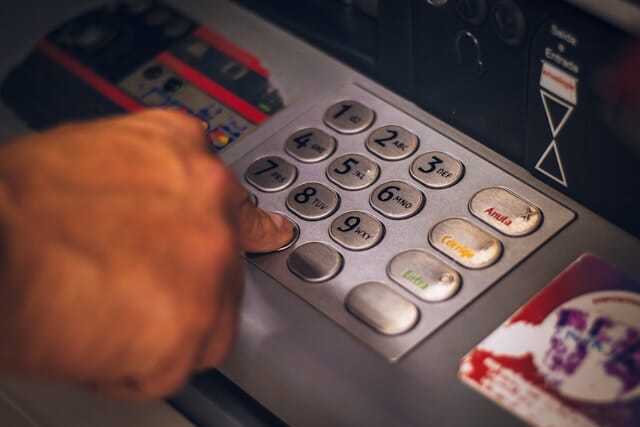In 2025, Nigeria's digital banking boom fueled by fintech giants like Moniepoint and PalmPay has made transfers quicker than ever. But with over 108 billion mobile money transactions in 2024 alone, errors happen. Mistyping an account number can send thousands of naira to a stranger's account, sparking panic. The good news? Recovery is possible if you act fast and follow legal protocols. This guide breaks down everything you need to know, from immediate actions to court orders, tailored for Nigerians using apps like Opay, GTBank, or Zenith transfers. We'll cover CBN guidelines, common pitfalls, and 2025 updates to help you reclaim your money without falling into scams.
Understanding Erroneous Transfers in Nigeria's 2025 Banking Landscape
Erroneous transfers occur when funds land in the wrong account due to typos, app glitches, or human error. In Nigeria, where mobile banking dominates, processing $1.68 trillion in 2024 such mistakes affect millions annually. The Central Bank of Nigeria (CBN) regulates these under the Banks and Other Financial Institutions Act (BOFIA) 2022, emphasizing customer protection but requiring proof of error.
Key 2025 context: With open banking frameworks launching in August, transfers are more traceable via APIs, but reversals still need consent or court intervention. Unlike fraud cases handled by EFCC, simple errors fall under civil recovery. Banks can't unilaterally reverse without recipient approval, as they act as facilitators only. If the recipient withdraws funds, recovery gets tougher, but liens or freezes can help.
Why it matters in Nigeria: High inflation (projected at 25% in 2025) makes every naira count. Diaspora remittances, hitting $20 billion yearly, often fuel these errors via IMTOs like Western Union, now restricted to naira payouts. Fintechs like Paga, processing ₦23 trillion since inception, offer built-in alerts, but errors persist.
Step-by-Step Guide: How to Recover Your Funds Immediately
Time is critical—act within 24-48 hours to freeze funds before withdrawal. Here's the 2025 playbook:
Step 1: Contact Your Bank Right Away (Within Minutes)
- What to Do: Call your bank's hotline (e.g., GTBank: 0700-482-66632; Access: 01-7332000) or visit a branch. Report the error with transaction ID, amount, date, time, intended vs. actual recipient details.
- Expected Action: Your bank notifies the recipient's bank via SWIFT or NIBSS for a "Post No Debit" (PND) freeze, halting withdrawals. In 2025, fintech-integrated banks like Moniepoint process this in under 30 minutes.
- Documents Needed: Screenshot of transfer, bank alert SMS, ID (NIN or BVN).
- Timeline: PND activates in 1-2 hours if same-bank; 24 hours for inter-bank.
Step 2: Send a Formal Demand Notice (Day 1)
- Draft a letter to the recipient's bank (template available on CBN site) demanding reversal. Include proof of error and your details.
- If Recipient Contacts You: Many do—politely explain and request return. Banks mediate 50% of cases here.
Step 3: Escalate to CBN Consumer Protection (Day 2-3)
File online at CBN's portal (cbn.gov.ng) or call 0700-225-5226. Attach all docs. Under 2022 guidelines, they arbitrate disputes, fining non-compliant banks up to ₦1 million. In 2025, AI chatbots handle initial triage. 40% resolution without court, per 2024 stats.
Step 4: Involve Security Agencies—But Wisely (If Funds Are Withdrawn)
- Avoid Police First: Courts frown on using police for recovery; it risks fundamental rights suits. Only if fraud suspected (e.g., scammer account).
- Consider EFCC: If significant fraud is involved, approach the Economic and Financial Crimes Commission (EFCC) with evidence.
- Use police as last resort report at nearest station with petition. But expect referral to court.
Legal Pathways: Obtaining a Court Order for Reversal
In Nigeria, the appropriate court for seeking a reversal order for funds sent to the wrong account depends on the transaction's location and the amount involved. For transactions in Lagos State involving less than ₦10,000,000, file the reversal application at the Magistrate Court, which handles smaller claims efficiently. For transactions in Abuja with funds up to ₦5,000,000, the District Court is the recommended venue, as it is equipped to process such cases effectively under local jurisdiction rules. Always verify the court's jurisdictional limits and location-specific guidelines to ensure proper filing.
For transactions exceeding ₦10,000,000 in Lagos or ₦5,000,000 in Abuja, file the reversal application at the State High Court in the respective state. Regardless of the amount, you may opt for the State High Court in either Lagos or Abuja for any sum. However, the Magistrate Court in Lagos (for amounts under ₦10,000,000) or District Court in Abuja (for amounts under ₦5,000,000) is recommended for smaller claims due to their efficiency and faster processing times, ensuring quicker resolution for eligible cases. Always confirm jurisdictional thresholds and court procedures for optimal outcomes.
What If Recovery Fails? Alternatives and Rights
If funds vanish, claim insurance if covered (rare for errors). Sue for damages if bank negligent. Consumer rights under FCCPC allow complaints at fccpc.gov.ng.
Recovering funds sent wrong in Nigeria 2025 demands speed, documentation, and legal savvy. From PND freezes to court orders, the system protects honest payers. Consult pros early—firms like Chaman Law Firm offer flat-fee services. Remember, errors aren't the end; with CBN's evolving rules and fintech tools, reclaiming your money is more accessible than ever. Share your story below—have you recovered a mistaken transfer? Stay vigilant, Nigeria!
Read More
- How to Protect Your Bank Apps from Hackers: 10 Essential Tips for Ultimate Security
- What Is a Wire Transfer? Your Complete Guide
- 4 Side Hustle Ideas to Earn $100,000 Even with a Busy Schedule
- Credit Card vs. Debit Card: Which One Should You Choose?
- 4 Things Small Businesses Should Consider In Today’s Economy

